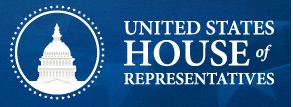Ft. Wayne, Indiana — The Northern District of Indiana has directed Malibu Media, LLC of Los Angeles, California to file separate amended complaints against each defendant in its lawsuit for copyright infringement.
The case, initially filed in July 2012 against 14 Doe defendants, had only four defendants remaining. In December 2012, the court had denied the motions to sever and declined to exercise its own discretion to sever the Doe defendants.
The court, in a recent opinion issued by Magistrate Judge Roger Cosbey, moved sua sponte to reconsider the issue. It held that, while permitting joinder earlier had promoted judicial economy and facilitated the discovery process, the case had reached the point where continued joinder would instead create judicial inefficiency due to the different factual issues and legal defenses in each defendant’s case. Does No. 5, 9 and 12 were severed, leaving Doe No. 6 as the only defendant remaining in the current suit.
The practical effect of severance of previously joined claims is the creation of one or more new actions. The court directed Malibu Media to file a separate amended complaint for each of the severed Does.
Practice Tip:
It has been estimated that over 200,000 users of various peer-to-peer file-sharing protocols, usually users of BitTorrent, have been sued for copyright infringement. Instead of a thorough investigation, followed by a lawsuit, these plaintiffs — usually holders of a copyright to a work of adult entertainment — gather the IP addresses of many potential/presumed infringers and then sue tens, hundreds or even thousands of defendants in a single suit. The plaintiffs then extract settlements from the defendants, who are motivated to settle to avoid the embarrassment of being associated with pornography and the expense of litigation, even if they may not have infringed the work.
The problem has become sufficiently widespread that it has garnered attention from mainstream press (see, e.g., here). Different approaches to the growing problem of copyright trolls have been taken. In some cases, defendants have filed suit, alleging fraud and extortion.
The problem has also caused considerable strain on the federal judiciary, leading one judge to deny joinder as serving no legitimate purpose in such cases once IPSs have been put on notice to preserve identifying information for particular IP addresses and to opine that it is “difficult to even imagine the extraordinary amount of time federal judges have spent on these cases.” Many other courts have also denied joinder, often on the theory that, while doing so does not solve the problem it, at least, makes pursuing such abusive litigation much less profitable.
Some courts have exercised their discretion to allow Doe defendants to proceed under a pseudonym, at least during the discovery phase of a suit.
 Indiana Intellectual Property Law News
Indiana Intellectual Property Law News



